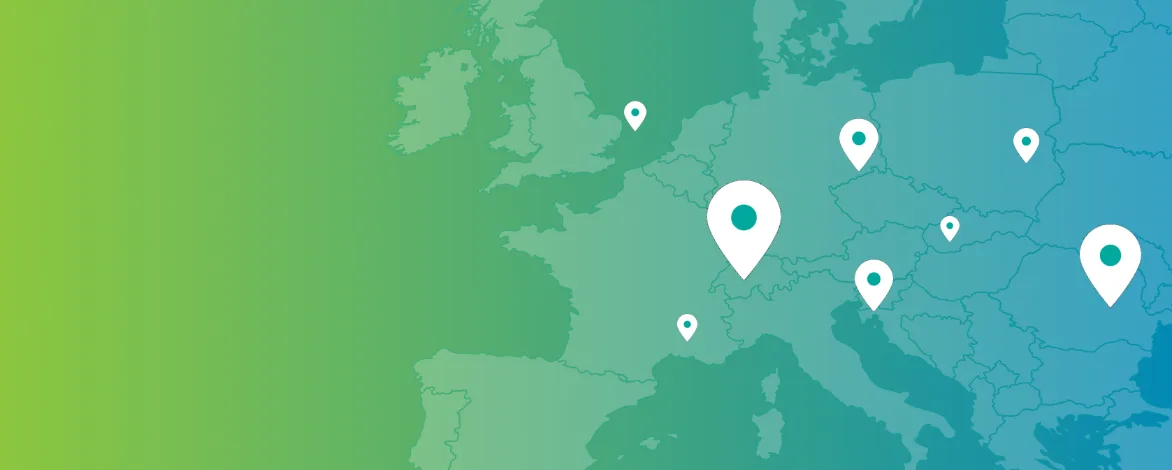Chemical industry snapshot
Switzerland’s leading exporter
The 250 chemical, pharmaceutical and life sciences company members of scienceindustries contributes 50% of Swiss exports and constitute the country’s top export industry.
With exports of CHF 135.5billion and imports of CHF 69.4 billion in 2023, members of our business association earned a trade surplus of CHF 66.1 billion.
In 2000, the chemical, pharmaceutical and life sciences industries still accounted for around 30% of Switzerland’s total exports; since 2016, they have contributed at least 45%. The industries are therefore proving to be a central pillar of the Swiss foreign trade and national economy and, hence, make a significant contribution to our country’s prosperity.
Around 45% of real GDP growth between 2013 and 2023 was generated by the chemical-pharmaceutical industry. The significance for productivity development is even greater: 89% of real productivity gains in the past 10 years were made possible by the chemical-pharmaceutical industry.
Powered by people
scienceindustries members are massive employers, with 77,800 FTEs in Switzerland in 2021, and over 365,000 FTEs across Swiss industries, who are depended on Chemistry Pharma Life Sciences. They are also well qualified: 46% of employees in scienceindustries companies have a higher qualification at tertiary level, against 28% for Swiss industry as a whole.
The industry is characterised by specialised regional clusters industries:
- Pharmaceuticals: Located in North-western (Basel) and Central Switzerland (Zug and Lucerne). Produces prescription and over-the-counter drugs (patented or generic) and ingredients.
- Diagnostics: Central Switzerland (Zug and Lucerne). Healthcare products which aid physicians to diagnose diseases.
- Vitamins: North-western Switzerland (Basel). Bulk product used in manufacturing or pharmaceuticals, foodstuffs and animal feed.
- Flavours and fragrances: Western Switzerland (Lake Geneva). Ingredients for manufacturing food, cosmetics and perfumes.
- Crop protection agents: North-western Switzerland (Basel) and Wallis. Herbicides, fungicides and insecticides including their active ingredients, primarily used in agriculture.
- Specialty and fine chemicals: Often providing tailored solutions involving intensive research and development, production of specialty chemicals is spread throughout Switzerland. The global annual demand for some of these specialties is often below a few metric tons, and all member companies are strongly export-oriented.
How are we doing?
Strengths
- Focus on research-intensive high-end specialties Market leadership in many fields
- Outstanding scientific and technological know-how and workforce skills
- Development of innovation clusters aids large, medium and small firms
- Supportive regulatory environment – including for patent and price issues
Challenges
- Continuation of bilateral relations with the EU unclear (Mutual Recognition Agreement MRA, free movement of persons, full accession to EU programs)
- Regulatory density
- Energy dependencies and high energy costs
- Skill shortages and a quota system for non-EU workers
Our contribution to a competitive Europe
A global research hub
Science and innovation are the basis for the economic success of our science industries. In 2021 scienceindustries members invested around CHF 6.7 billion in research and development in Switzerland, around 40% of total private investments in research and development. More than a third of total Swiss private investment goes into biotechnology.
Switzerland was ranked first in the WIPO Global Innovation Index in 2023, for the 13th time in a row. The award as the most innovative economy in the world is thanks to the “Innovation Top-Performers” and scienceindustries members.
Member companies focus on specialties, mainly pharmaceuticals and diagnostics, vitamins, crop protection agents, flavours and fragrances and fine chemicals. Specialty chemicals for industry purposes, pigments and dyestuffs constitute the rest.
Our success is based upon well-equipped regional centres, comprising universities, private research institutes and companies.
Swiss companies help drive research around the world, and leaders have research activities in the US, Singapore, Japan, as well as EU facilities in the United Kingdom and Germany. Collaboration with and investments in other companies are growing. Biotech companies are particularly important in identifying and developing new ideas, new technologies and innovative products. Companies in North-western Switzerland allocate around 20% of their R&D budgets to co-operative projects with external research groups.













